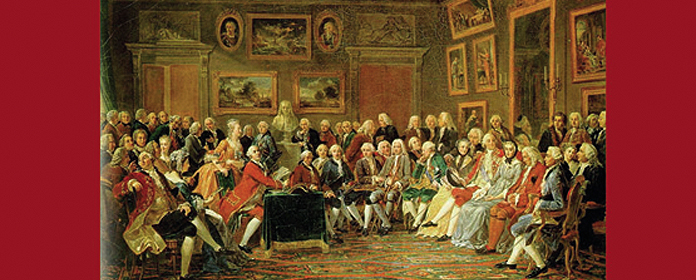The bequest of the Enlightenment in the history of religious tolerance and current debates, topic of an international ICS congress
Experts from 7 countries from universities such as Yale, Rutgers or University College London will debate on June 22 and 23 in this activity organized by the project 'Religion and Civil Society'

The project 'Religion and Civil Society' of the Institute for Culture and Society (ICS) organizes on June 22 and 23 the international congress Religious Toleration in the Age of Enlightenment (1650-1800): Historical Perspectives on Current Debates.
The activity will revolve around two main lines. The first is to trace the many Enlightenment legacies present in dominant discourses on religion and freedom. The second is to reconsider existing narratives about the place of the Enlightenment in the history of tolerance. This approach aims to goal examine more critically the assumptions underlying recent debates about religious freedom and to contribute to a more rigorous and honest dialogue about this topic.
Experts from universities in Bulgaria, Chile, the USA, Spain, Hungary, the Netherlands and the UK will speak on topics related to religious peace, religious violence, training of the tolerant mentality or Islam, among others.
PresentationsOn the 22nd the following lectures will take place: Erasmianism, Religious Peace and the Practices of Discovery in Early Modern Europe, by David Harris Sacks (Reed College); The Long way to Toleration: Emeric Crucé, by María José Villaverde (Universidad Complutense de Madrid); From Practice to Theory to Practice: William Penn from Prison to the Founding of Pennsylvania, by Andrew Murphy (Rutgers University); A State within the State: the Inquisition in Enlightenment Thought, by Juan Pablo Domínguez (Yale University); and John Owen and John Locke on Toleration and Doctrinal Minimalism, by Manfred Svensson (Universidad de los Andes).
The papers scheduled for the 23rd are Religion, Toleration and Enlightenment: the Dutch case, by Joris van Eijnatten (Universiteit Utrecht); Deism, Freethinking and Toleration in Enlightenment England, by Diego Lucci (American University in Bulgaria); Religious Violence in the Age of Enlightenment, by Benjamin Kaplan (University College London); The (Difficult) Formation of the Tolerant Mind, by Péter Balázs (University of Szeged); The Dark Side of the Enlightenment, by Lionel Laborie (Goldsmiths, University of London); and Islam, Toleration, and the Enlightenment, by John Marshall (Johns Hopkins University). The conclusions will be presented at position by Rafael García Pérez, professor at School of Law and partner of project 'Religion and Civil Society'.
